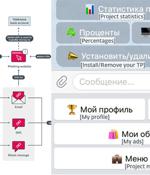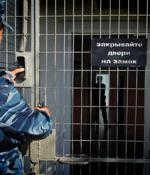Security News

The International Criminal Court said criminals breached its IT systems last week but it isn't over yet, with the ICC saying the "Cybersecurity incident" is still ongoing. As the court continues to analyze and mitigate the impact of the incident, the priority is ensuring that the core work of the Court continues.

The U.K. and U.S. governments on Thursday sanctioned 11 individuals who are alleged to be part of the notorious Russia-based TrickBot cybercrime gang. "Russia has long been a safe haven for cybercriminals, including the TrickBot group," the U.S. Treasury Department said, adding it has "Ties to Russian intelligence services and has targeted the U.S. Government and U.S. companies, including hospitals."

Meta has disclosed that it disrupted two of the largest known covert influence operations in the world from China and Russia, blocking thousands of accounts and pages across its platform. The network, which included 7,704 Facebook accounts, 954 Pages, 15 Groups and 15 Instagram accounts, is said to have been run by "Geographically dispersed operators" across China, posting content about China and its province Xinjiang, criticism of the U.S, Western foreign policies, and critics of the Chinese government.

A controversial United Nations proposal has a new foe, Microsoft, which has joined the growing number of organizations warning delegates that the draft version of the UN cybercrime treaty only succeeds in justifying state surveillance - not stopping criminals, as originally intended. "The risk is that the treaty will not be a tool for prosecuting criminals but rather a weapon that allows for intrusive data access and surveillance instruments," she wrote in a LinkedIn post.

Claims to have taken down two colossal networks, with 'Secondary Infektion' schooling 'Spamouflage' Russia appears to be "better" at running online trolling campaigns aimed at pushing its...

Dubbed Telekopye, a portmanteau of Telegram and kopye, the toolkit functions as an automated means to create a phishing web page from a premade template and send the URL to potential victims, codenamed Mammoths by the criminals. The attack chains proceed thus: Neanderthals find their Mammoths and try to build rapport with them, before sending a bogus link created using the Telekopye phishing kit via email, SMS, or a direct message.

An infamous Kremlin-backed gang has been using Microsoft Teams chats in attempts to phish marks in governments, NGOs, and IT businesses, according to the Windows giant. In its latest crime spree, a crew that Microsoft Threat Intelligence now tracks as Midnight Blizzard uses previously compromised Microsoft 365 tenants to create domains that masquerade as organizations offering tech support.

The threat actor known as Space Pirates has been linked to attacks against at least 16 organizations in Russia and Serbia over the past year by employing novel tactics and adding new cyber weapons to its arsenal. Targets comprise government agencies, educational institutions, private security companies, aerospace manufacturers, agricultural producers, defense, energy, and healthcare firms in Russia and Serbia.

Sachkov faces 14-year stretch after 'unreasonably rushed trial' A Russian court has sentenced Ilya Sachkov, the founder of security research house Group-IB, to 14 years in a maximum-security...

The project was launched by a pro-Russian hacktivist group known as "NoName057(16)" last summer, quickly reaching 400 active members and 13,000 users on its Telegram channel. In a new report released today, Sekoia analysts say that the DDoSia platform has grown significantly over the year, reaching 10,000 active members contributing firepower to the project's DDoS attacks and 45,000 subscribers on its main Telegram channel.